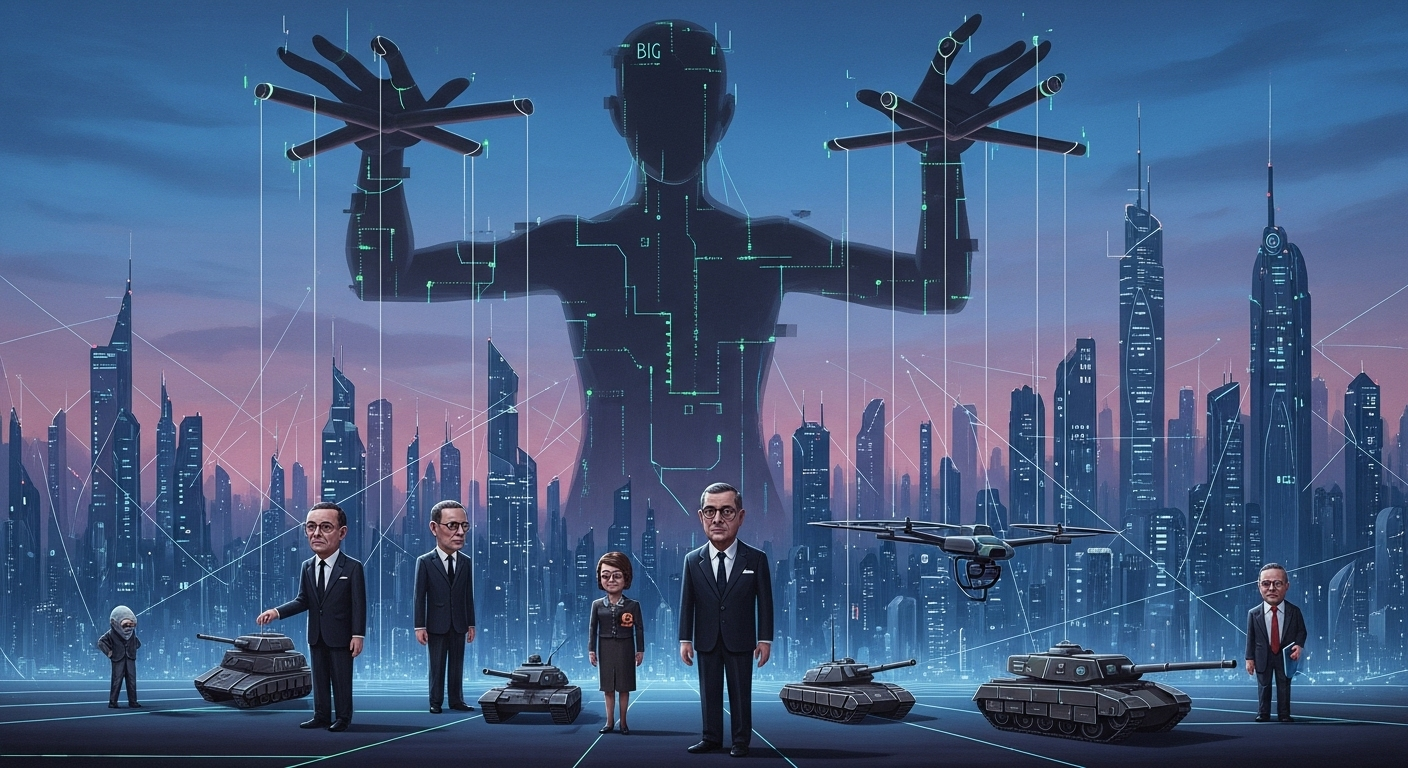Let’s be honest: fear sells. And in the high-stakes world of technology and national security, it sells big. You know the drill – a new threat emerges, a rival nation flexes its muscles, and suddenly, everyone’s scrambling for the latest, greatest, and often most expensive, solution.
But what if that threat is being, shall we say, amplified? What if the drums of war, or at least technological competition, are being beaten by those who stand to gain the most?
The Cold War Playbook: A Familiar Tune
Cast your mind back to the Cold War. Remember the constant chatter about the Soviet Union’s supposedly superior military might? The narrative was everywhere: they were ahead, we were falling behind, we needed to spend more, much more, to keep up.
Why? Well, as a recent Reddit post brilliantly pointed out, much of that was the military-industrial complex at work. They spent a fortune pushing a narrative of an advanced, overwhelming Soviet threat that was often far from the truth. Their goal was simple: ensure the money from Congress kept flowing into their coffers. They lied, exaggerated, and then lied some more to secure bigger and bigger defense contracts. Fear, as we said, sells.
Big AI’s Modern Remix
Fast forward to today, and you might notice a similar rhythm playing out. The new boogeyman? China, and specifically, China’s advancements in Artificial Intelligence. Now, don’t get me wrong, competition between global powers is real, and AI is undoubtedly a critical frontier.
But here’s the kicker: Big Tech is stoking these flames beyond what’s reasonable. They’re playing on anxieties about a looming AI arms race to terrify Congress into giving them exactly what they want: fat government contracts and virtually zero democratic oversight.
Think about it. Day after day, we hear about another major AI company landing a colossal contract with the Department of Defense or other government agencies. These aren’t just small pilot programs; we’re talking about deals worth billions.
The Price of Fear: Money and Missing Oversight
So, what’s the real cost of this fear-driven narrative? Beyond the sheer amount of taxpayer money potentially being funneled into these companies, there’s a more insidious consequence: the lack of democratic oversight.
When something is framed as an urgent national security imperative, critical questions often get sidelined. Questions about ethics, accountability, bias, and the long-term societal impact of these powerful AI systems can take a backseat to the perceived need for speed and dominance. It’s a classic power play: create a crisis, offer the solution, and bypass the usual checks and balances.
Your Takeaway
It’s crucial for us, as informed citizens, to look beyond the headlines and ask tough questions. Is the narrative we’re hearing truly about national security, or is it also about corporate profit and unchecked power? The next time you hear about the urgent need to ‘beat China in AI,’ remember the Cold War playbook. Sometimes, the biggest threat isn’t what’s on the other side of the world, but what’s being whispered in the halls of power, driven by an age-old strategy: fear sells.
